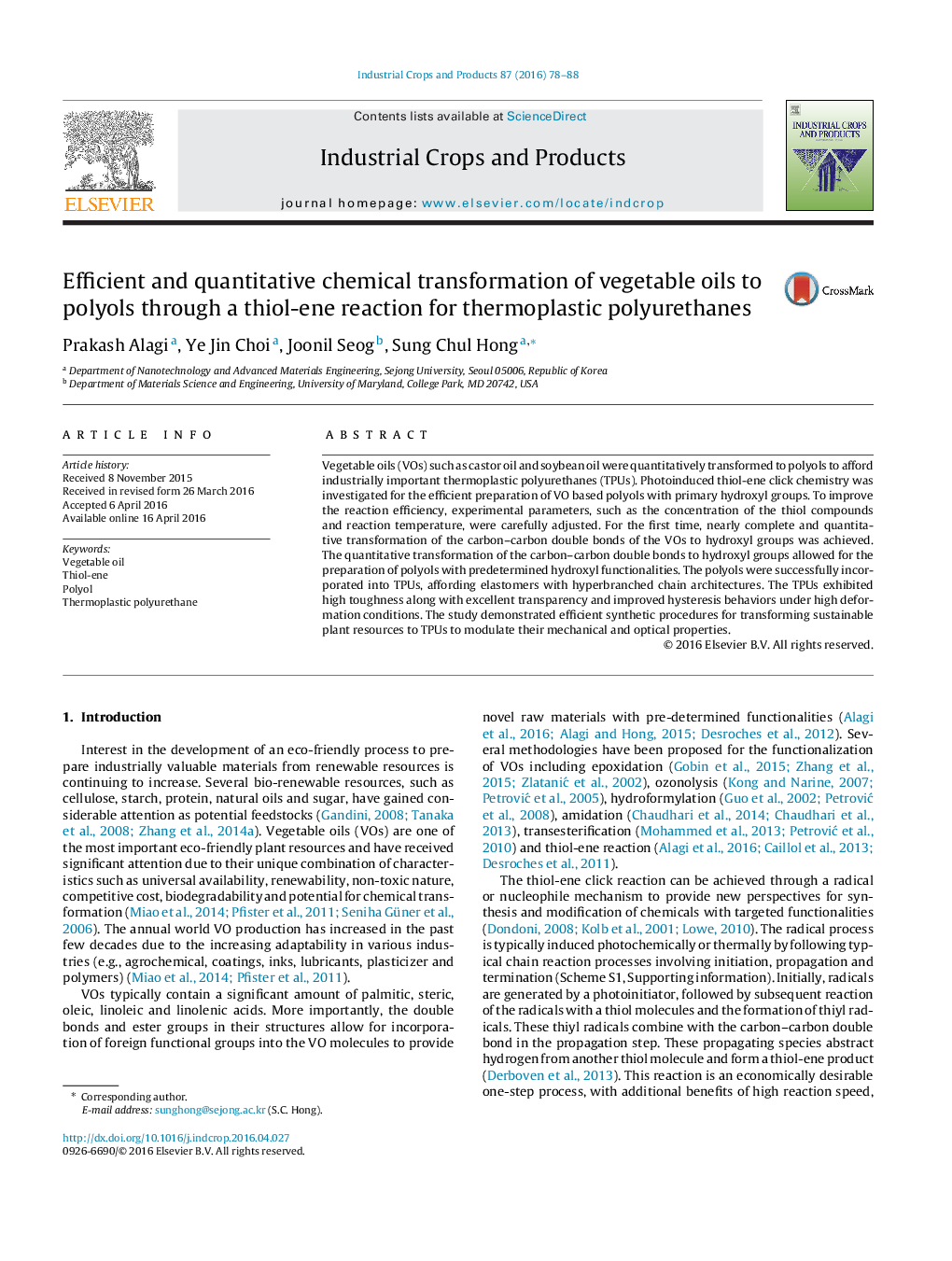| Article ID | Journal | Published Year | Pages | File Type |
|---|---|---|---|---|
| 4512265 | Industrial Crops and Products | 2016 | 11 Pages |
•Vegetable oils are efficiently transformed to polyols through thiol-ene reaction.•For the first time, nearly complete and quantitative transformation is achieved.•The polyols from vegetable oils successfully afford thermoplastic polyurethanes.•The thermoplastic polyurethanes exhibit excellent toughness and transparency.
Vegetable oils (VOs) such as castor oil and soybean oil were quantitatively transformed to polyols to afford industrially important thermoplastic polyurethanes (TPUs). Photoinduced thiol-ene click chemistry was investigated for the efficient preparation of VO based polyols with primary hydroxyl groups. To improve the reaction efficiency, experimental parameters, such as the concentration of the thiol compounds and reaction temperature, were carefully adjusted. For the first time, nearly complete and quantitative transformation of the carbon–carbon double bonds of the VOs to hydroxyl groups was achieved. The quantitative transformation of the carbon–carbon double bonds to hydroxyl groups allowed for the preparation of polyols with predetermined hydroxyl functionalities. The polyols were successfully incorporated into TPUs, affording elastomers with hyperbranched chain architectures. The TPUs exhibited high toughness along with excellent transparency and improved hysteresis behaviors under high deformation conditions. The study demonstrated efficient synthetic procedures for transforming sustainable plant resources to TPUs to modulate their mechanical and optical properties.
